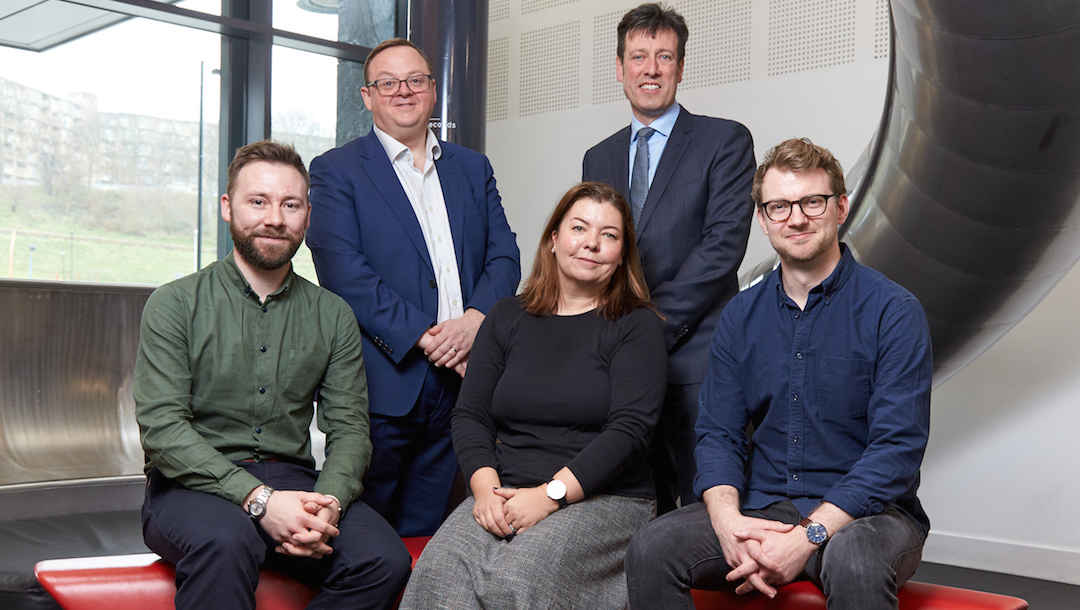A company which helps universities to commercialise academic research by initiating new collaborations with industry has secured a £950,000 investment. The funding includes £750,000 from NPIF – Mercia Equity Finance, which is managed by Mercia Fund Managers and is part of the Northern Powerhouse Investment Fund, with an additional £200,000 from two private investors.
IN-PART’s online matchmaking platform collaboration simplifies the process through which discoveries made in universities are turned into new products, drugs and technologies that have a positive impact on society.
The company, which also received seed capital of around £350k in 2016, employs 28 people in its offices in Sheffield and London. This latest funding round will allow it to expand its teams in both locations.
As part of the deal, Thomas Jørgensen, co-founder of university software platform Pure, which was sold to Elsevier in 2012, will join the board as Chairman.
Using proactive outreach, underpinned by smart matchmaking algorithms, IN-PART sends personalised alerts to research and development (R&D) teams in industry with relevant innovations being developed by academic researchers around the world.
When a company signals interest, IN-PART organises the initial introduction. Feedback is gathered from companies and interaction data from the platform is analysed to provide engagement metrics and early-stage technology trends.
IN-PART’s company network now includes R&D teams in over 5,500 companies, including Roche, Johnson & Johnson, Samsung, IBM, Google X, and multiple users from all of the top 25 global R&D-spending firms in 2018.
Over 220 universities and research institutes from six continents showcase their research on the platform, including Columbia, Cornell, UPenn, Max Planck, Leiden, Vienna, Osaka, Queensland, Australian National University and the University of Hong Kong, as well as leading UK universities such as Oxford, Cambridge, Sheffield, Edinburgh and Manchester.
Patrick Speedie, Co-CEO and co-founder of IN-PART, said: “We’re pleased to receive support from the Northern Powerhouse Investment Fund as well as adding some great new non-executive expertise to our board. The funding will allow us to invest further in product development to scale our matchmaking platform and our Discover product, in line with our vision of connecting university research with companies around the world to positively impact on society.”
Nicola Broughton, Head of Universities at Mercia and who will join the In-PART board, said: “Universities have been responsible for some of the biggest breakthroughs in modern times and IN-PART is helping to transfer university technology across the globe. This latest funding will allow it to build its presence in the international marketplace and replicate the significant success it has enjoyed in the UK.”
Sean Hutchinson, Senior Manager at British Business Bank, said: “NPIF continues to provide vital funding to Northern businesses across the region. We are pleased to continue this support, and are proud to work in partnership with Mercia Equity Finance and our other appointed fund managers to make a real impact on business communities by boosting jobs within this Sheffield-based team and strengthening regional economies to unlock the North’s potential.”
James Muir, Chair of the Sheffield City Region Local Enterprise Partnership, said: “This investment is great news for our region; a region already known for its cutting-edge collaborations between universities and business.
“Many of the solutions to our biggest global challenges, such as climate change, healthy ageing and scarcity of resources, will come from the brightest minds in academia. It’s therefore great to see In Part, based here in the Sheffield City Region, providing the technological tools to enable this knowledge to be commercialised.”
The Northern Powerhouse Investment Fund project is supported financially by the European Union using funding from the European Regional Development Fund (ERDF) as part of the European Structural and Investment Funds Growth Programme 2014-2020 and the European Investment Bank.
